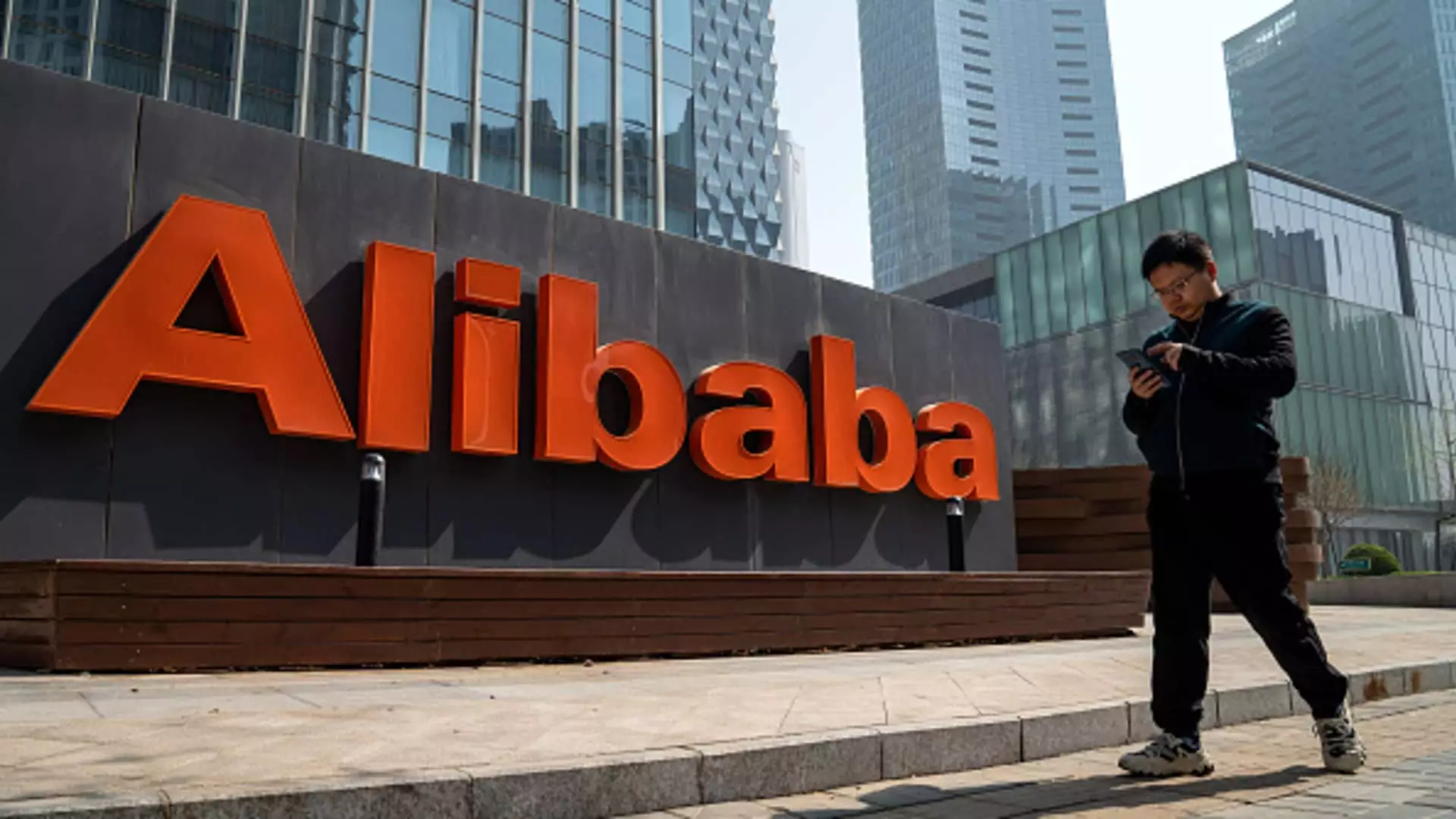As China’s leading e-commerce powerhouse, Alibaba has once again captured headlines following its recent financial results, which exhibit a contrasting narrative of profit surges against a backtrack in overall sales. The figures released reflect the complexities of navigating a slowing economy whilst attempting to rebound from the repercussions of stringent regulatory measures imposed by Beijing.
In a surprising twist, Alibaba reported a staggering 58% increase in net income for the quarter ending September 30, reaching a notable 43.9 billion Chinese yuan (or approximately $6.07 billion). This dramatic rise, however, can be primarily attributed to favorable changes in the company’s equity investments and a reduction in impairment losses rather than a robust uptick in operational revenue. The net profits easily surpassed the London Stock Exchange Group (LSEG) consensus, which had forecasted a significantly lower figure of 25.83 billion yuan. Such figures may look encouraging at face value, but they do mask deeper concerns about the core business contributing to revenue.
While profit figures are certainly impressive, the performance on the sales front tells a different story. Alibaba’s revenue reached 236.5 billion yuan— a modest 5% increase year-on-year, yet this fell short of the anticipated 238.9 billion yuan. The meandering sales figures highlight the sluggish consumer spending patterns in China’s economy, hurt by prevailing uncertainties and the general malaise affecting the retail sector. As other companies like JD.com also posted revenue misses, it becomes clear that even the titans of e-commerce are not immune to the broader economic climate.
Despite the overall disappointments in revenue, Alibaba’s core platforms, Taobao and Tmall Group, did report a marginal 1% growth in revenue for the September quarter, totaling 98.99 billion yuan. This result may indicate a slight resilience among consumers, however, the prevailing atmosphere remains tenuous. With Chinese consumer sentiment continuing to be influenced by wider economic factors, the upcoming stimulus measures from Beijing, including a substantial package aimed specifically at countering the downturn, will be pivotal. It remains to be seen whether these initiatives will inject enough vitality into consumer spending to support Alibaba and its peers.
Amidst domestic challenges, Alibaba’s international ventures show promise, with its overseas shopping platforms—most notably Lazada and AliExpress—reporting a 29% year-on-year surge in sales to 31.67 billion yuan. This diversification into international markets could serve as a buffer against slowing domestic demand and indicates a strategic pivot at a time when the Chinese economy faces persistent challenges.
In addition to e-commerce, Alibaba’s Cloud Intelligence Group showcased resilience with a 7% year-on-year revenue increase to 27.65 billion yuan. Notably, this marks an acceleration in growth compared to previous quarters, showcasing the company’s potential in the burgeoning cloud and AI sectors. With initiatives to enhance AI-related products, Alibaba aims to cement its leadership in the competitive tech landscape, particularly as it faces tough competition from domestic rivals like Baidu and Huawei, as well as international giants like Microsoft and OpenAI.
CEO Eddie Wu expressed confidence in the cloud sector’s trajectory, underscoring the importance of sustained investment in developing new technologies. As the company strategically positions itself, the introduction of innovative products like the AI-search tool tailored for small businesses could redefine the competitive landscape, suggesting an adaptive approach in the face of challenges.
Alibaba’s recent earnings report presents a complex picture where profitability shines against a backdrop of fluctuating sales and challenging market dynamics. As it navigates through these obstacles, the company’s focus on international expansion, cloud technology, and resilience in core operations will be critical for sustained growth. It remains to be seen whether renewed consumer confidence spurred by government stimulus will uplift the retail sector, but Alibaba’s journey is sure to remain captivating for investors and industry observers alike. The path forward is fraught with uncertainties; however, if executed strategically, Alibaba may leverage both its challenges and innovations to emerge stronger in an evolving global economy.

Leave a Reply